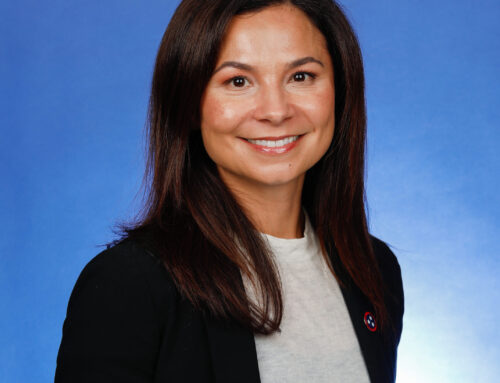Open Records Counsel Ann Butterworth told members of the Advisory Committee on Open Government at a Friday meeting that her office will develop a second draft of a model public records policy and best practices guidelines and present them in coming weeks.
ACOG, a 14-member committee appointed by the Comptroller’s Office, is allowed under state law to review and provide comment on the model policy, and any other forms or schedules produced by the office.
Butterworth and new deputy open records counsel Lee Pope said the office received more than 40 comments from the public and members of ACOG on its draft model policy and other eight documents and forms it was revising. Many came in on Thursday afternoon before the Friday morning ACOG meeting.
Adam Yeomans attended the meeting as representative for Tennessee Coalition for Open Government. Other ACOG members present in person were Jack McElroy, editor of the Knoxville News Sentinel and representative of the Tennessee Press Association, and Dick Williams of Common Cause. Whit Adamson, executive director of Tennessee Association of Broadcasters, and attorney Doug Pierce attended on behalf of the broadcasters association.
Several ACOG members attended by phone, including Dennis Weber of AARP, Debbie Shedden, Hawkins County school board member representing the Tennessee School Board Association, Obion County Sheriff Jerry Vastbinder representing the Tennessee Sheriff’s Association, Blake Farmer representing the Society of Professional Journalists, Sumner County Clerk Kathryn Strong representing the County Officials Association of Tennessee, and Memphis assistant attorney Maya Siggers, representing the Tennessee Municipal League. Janet Kleinfelter, an ex-officio member, attended as the Tennessee Attorney General’s representative.
The agenda listed discussion of the proposed Model Public Records Policy, and Yeomans suggested ACOG discuss if there were any areas of consensus. However, Kleinfelter said nothing in the law required ACOG to reach any consensus on any points, so no discussion between members occurred.
Butterworth and Pope said they received so many comments on Thursday and they wanted time to digest them. They said new drafts of the policy and other eight documents would be presented to members of ACOG later.
Earlier, the office had set Jan. 15 as the deadline to have a final version of all the documents. But Butterworth said that was a self-imposed date. However, she said, the office needs to provide something fairly soon so that governing bodies that meet only once or twice a year have time to review the model and adopt their own by a statutory deadline of July 1, 2017.
Few of the substantive issues raised by TCOG in its model policy comments and other comments on other forms were addressed in the meeting. (These included questions about whether the draft policy suggests that government entities are allowed to deny a request if is received through email instead of the U.S. Postal Service.) But the office did provide ACOG a list of others who had offered feedback, and included some of the more specific comments.
Among the comments was a call from the Tennessee School Board Association to revisit the language about fee waivers, suggesting that without better guidance, waiving fees could become arbitrary. The TSBA also noted that the policy and guidelines don’t address charges for producing electronic records. They also said that a sentence in the guidelines suggesting that records custodians follow up “if appropriate….to see if (the) request can be narrowed” imposes a duty not required by law.
The Open Records Counsel in December 2014 issued an opinion related to charging for electronic copies. In that opinion, the office says that the Schedule of Reasonable Fees “does not authorize a per page fee for a page of records sent electronically.” Here’s an excerpt from that opinion.
“If the public record existed in paper form, without need for redaction, the act of scanning the record does not trigger the per page fee, but may trigger labor charges and other production charges. If the public record already exists in the electronic format that will be sent to the requestor, without need for redaction, then the act either of copying, or of sending, the record does not trigger the per page fee, but may trigger labor charges and other production charges.”
The office said at that time that a custodian could charge for:
- actual, out of pocket costs for discs, flash drives or other similar device used to convey the records;
- shipping or outside vendor charges;
- labor in accordance with the Schedule; and
- per page costs only when paper copies that did not already exist are required to be produced in response to the request.
The Office of Open Records Counsel also took public comment, and some government entities weighed in to call for the ability to charge for inspection, including the city of Bristol and the Electric Power Board of Chattanooga. The law makes clear that government entities can only charge for copies, and cannot charge if a citizen just wants to inspect records. The Office of Open Records Counsel could not establish an inspection charge without a change in law. An attempt to change the law failed two years ago.
One issue discussed at the meeting was about a statement in the guidelines that said “a governmental entity has discretion to provide access when requests are made by entities.”
When asked if that meant a government entity could deny a request to an organization, such as a newspaper, TV station or nonprofit group, Butterworth at first said yes, then clarified that if the person making the request was a Tennessee citizen, the request should be honored. Because of confusion surrounding this sentence, attorney Doug Pierce who represents the Tennessee Association of Broadcasters, sent Butterworth a followup letter citing two appellate ruling that recognized the rights of unincorporated associations and Tennessee corporations right to sue under the Public Records Act.

